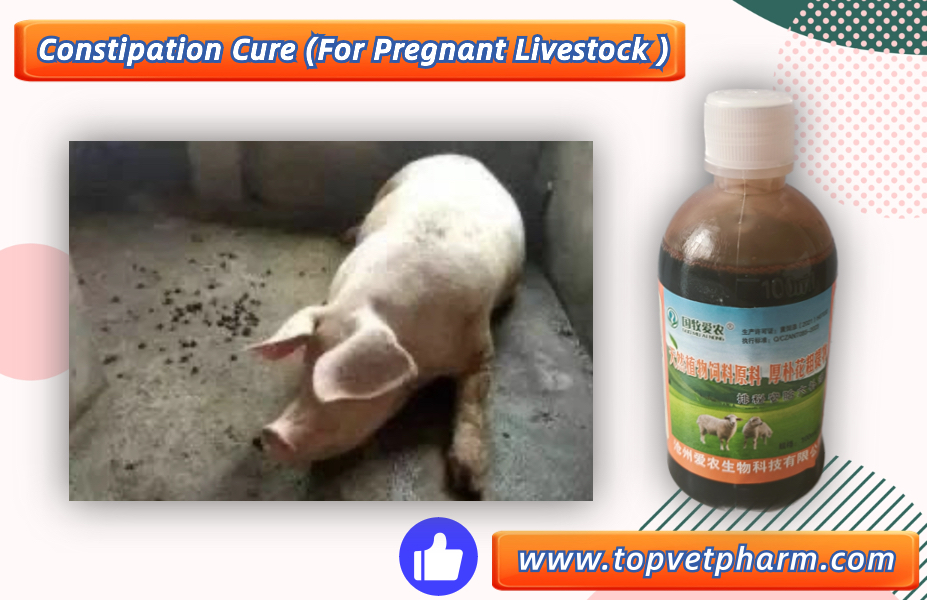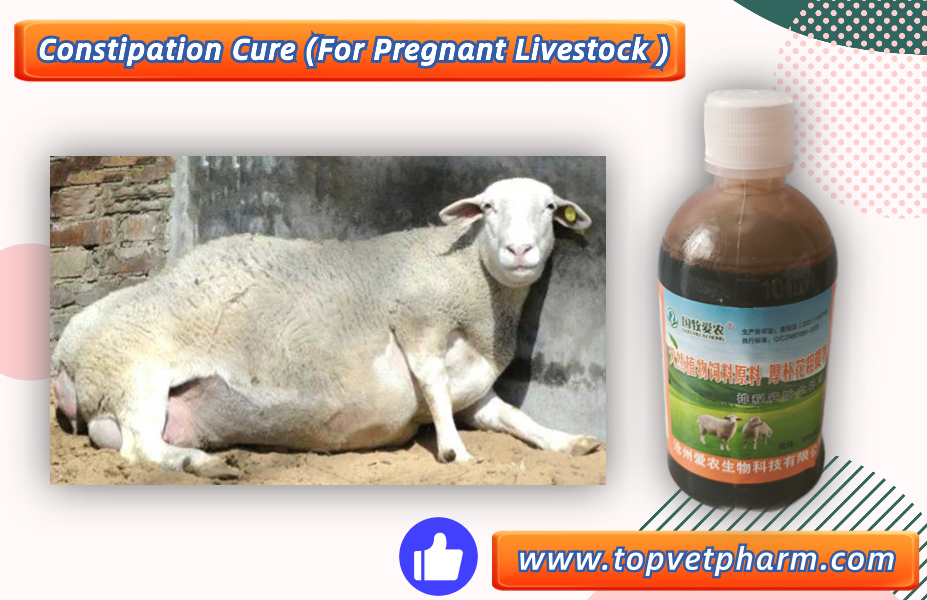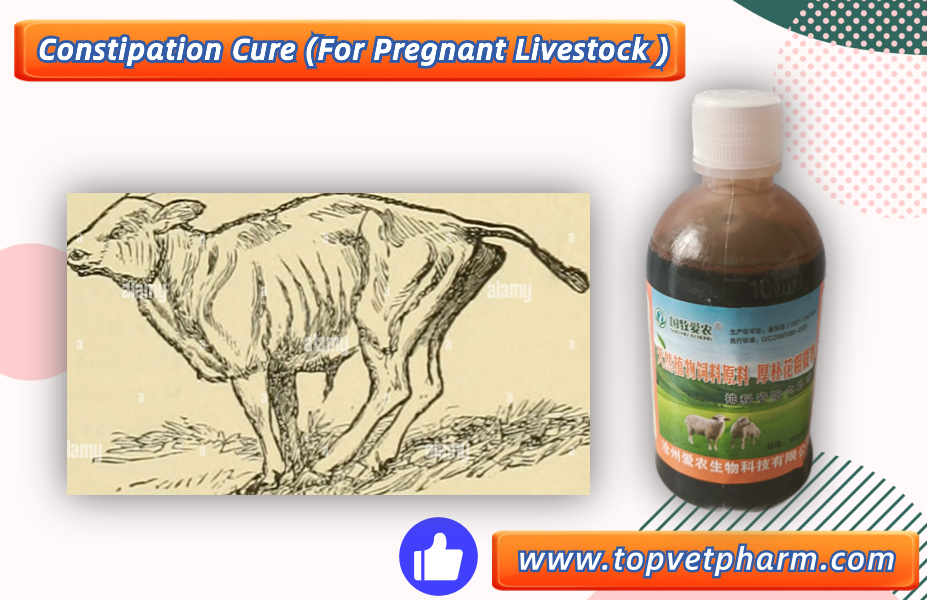Oct. 16 , 2023
Pregnant livestock, such as cows, ewes (female sheep), and sows (female pigs), can experience constipation as a result of the physical changes and increased pressure on the digestive system during pregnancy. The symptoms and treatment for constipation in pregnant livestock are similar to those for non-pregnant animals, but there are some considerations specific to pregnant animals:

Symptoms of Constipation in Pregnant Livestock:
Reduced Fecal Output: One of the primary signs is a noticeable decrease in the frequency and quantity of feces produced.
Straining: The animal may strain during attempts to defecate, indicating difficulty in passing stools.
Abdominal Discomfort: Constipated pregnant animals may exhibit signs of discomfort or pain, such as restlessness, kicking at their belly, or vocalization.
Reduced Appetite: Constipation can lead to a decreased appetite and reduced feed intake.
Lethargy: Affected animals may appear lethargic or uninterested in their surroundings.
Treatment of Constipation in Pregnant Livestock:
The treatment of constipation in pregnant livestock should focus on providing relief while ensuring the safety and well-being of the unborn offspring. Here are the general steps for treatment:
Hydration: Ensure the pregnant animal has access to clean and fresh water at all times to prevent dehydration.
Dietary Adjustments:
Increase Fiber: Offer high-fiber forage such as hay or fresh grass to promote regular bowel movements. Fiber helps soften stools.
Limit Grains: Reduce or eliminate grains from the diet, as excessive grain consumption can contribute to constipation.
Laxatives or Lubricants: Under the guidance of a veterinarian, use natural laxatives or lubricants, such as mineral oil or commercial laxatives, to soften impacted stool and make it easier to pass.Here suggest use Constipation Cure. Natural Remedy Relieve Constipation In Short Time.
Exercise: Encourage the pregnant animal to move and exercise, which can help stimulate the digestive system. However, be cautious not to overexert them, especially as pregnancy progresses.
Pain Relief (if necessary): If the animal is in discomfort, consult a veterinarian who can prescribe pain relief medication suitable for pregnant animals.
Veterinary Consultation: For severe or prolonged cases of constipation, or if there are underlying health issues, seek professional advice from a veterinarian who can assess the specific situation and provide the most appropriate treatment.
Monitoring: Continuously monitor the animal's condition and response to treatment, and report any concerns to the veterinarian.

It's important to note that constipation in pregnant livestock can have adverse effects on both the mother and her unborn offspring. Veterinary care is crucial in these situations to ensure a safe and healthy pregnancy. Additionally, preventative measures, such as maintaining a balanced diet and proper hydration, are important in the care of pregnant animals to reduce the risk of constipation.









